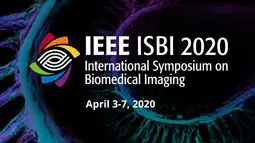Model-Based Deep Learning for Reconstruction of Joint K-Q Under-Sampled High Resolution Diffusion MRI
Merry Mani,Hemant Kumar Aggarwal,Mathews Jacob
-
Members: FreeSPS
IEEE Members: $11.00
Non-members: $15.00Length: 17:18
03 Apr 2020
We propose a model-based deep learning architecture for the reconstruction of highly accelerated diffusion magnetic resonance imaging (MRI) that enables high-resolution imaging. The proposed reconstruction jointly recovers all the diffusion-weighted images in a single step from a joint k-q under-sampled acquisition in a parallel MRI setting. We propose the novel use of a pre-trained denoiser as a regularizer in a model-based reconstruction for the recovery of highly under-sampled data. Specifically, we designed the denoiser based on a general diffusion MRI tissue microstructure model for multi-compartmental modeling. By using a wide range of biologically plausible parameter values for the multi-compartmental microstructure model, we simulated diffusion signal that spans the entire microstructure parameter space. A neural network was trained in an unsupervised manner using a convolutional autoencoder to learn the diffusion MRI signal subspace. We employed the autoencoder in a model-based reconstruction that unrolls the iterations similar to the recently proposed MoDL framework. Specifically, we show that the autoencoder provides a strong denoising prior to recover the q-space signal. We show reconstruction results on a simulated brain dataset that shows high acceleration capabilities of the proposed method.



